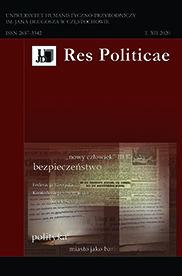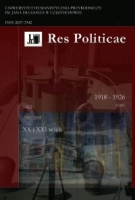The Genesis and assumptions of the contemporary security strategy of the Swiss Confederation
Keywords:
Switzerland, security policy, Armed Forces, international cooperationAbstract
For centuries, Switzerland’s security system was based on the historically grounded neutrality
and it was directed “inwards”, with few exceptions such as World Wars. Along with geopolitical
changes in Europe and in the world in the 20th and 21st centuriy, the country was forced to re-evaluate
its security policy. In the internal area, the Armed Forces were reorganized and modernized,
creating one of a kind military organisation, well-equipped militia army based on obligatory army
service for the citizens, civil defense and strong social need to defend the country. Contemporary threats to the European security have forced the Confederation to open itself to international cooperation,
which resulted in joining to the UN and intensified cooperation with other organizations,
including the EU and NATO. Switzerland returned to “active neutrality”, established extensive
economic and assistance contacts, and joined – with other countries – peacekeeping, stabilization
and observation missions with the UN mandate around the world. In the 20th and 21st century,
Switzerland has become a country opened to international cooperation in many areas, not only
economic but also political.


